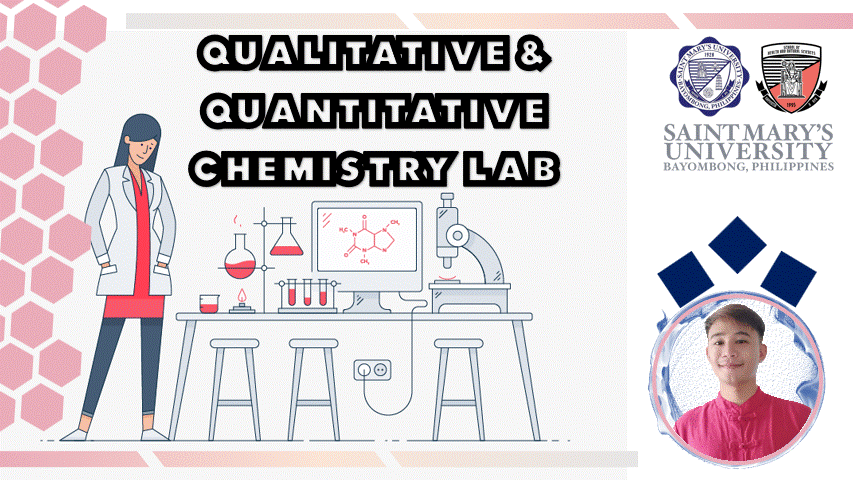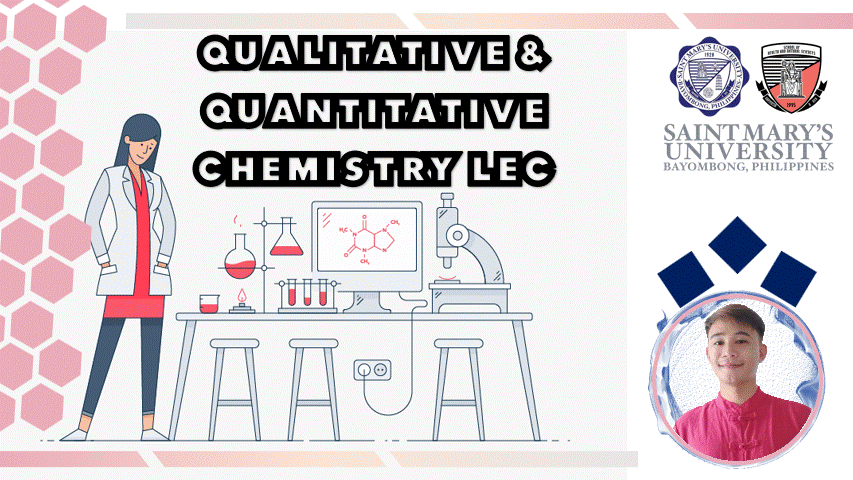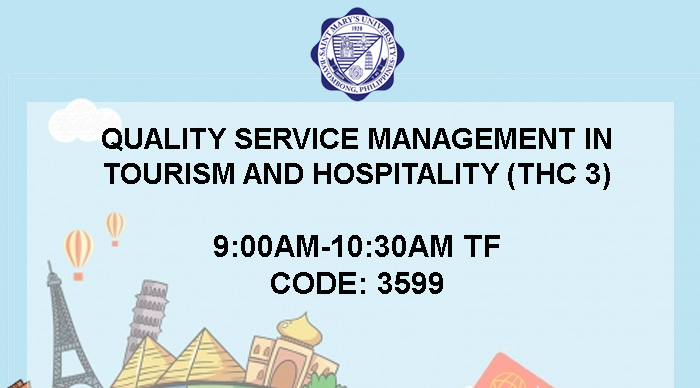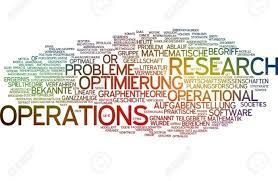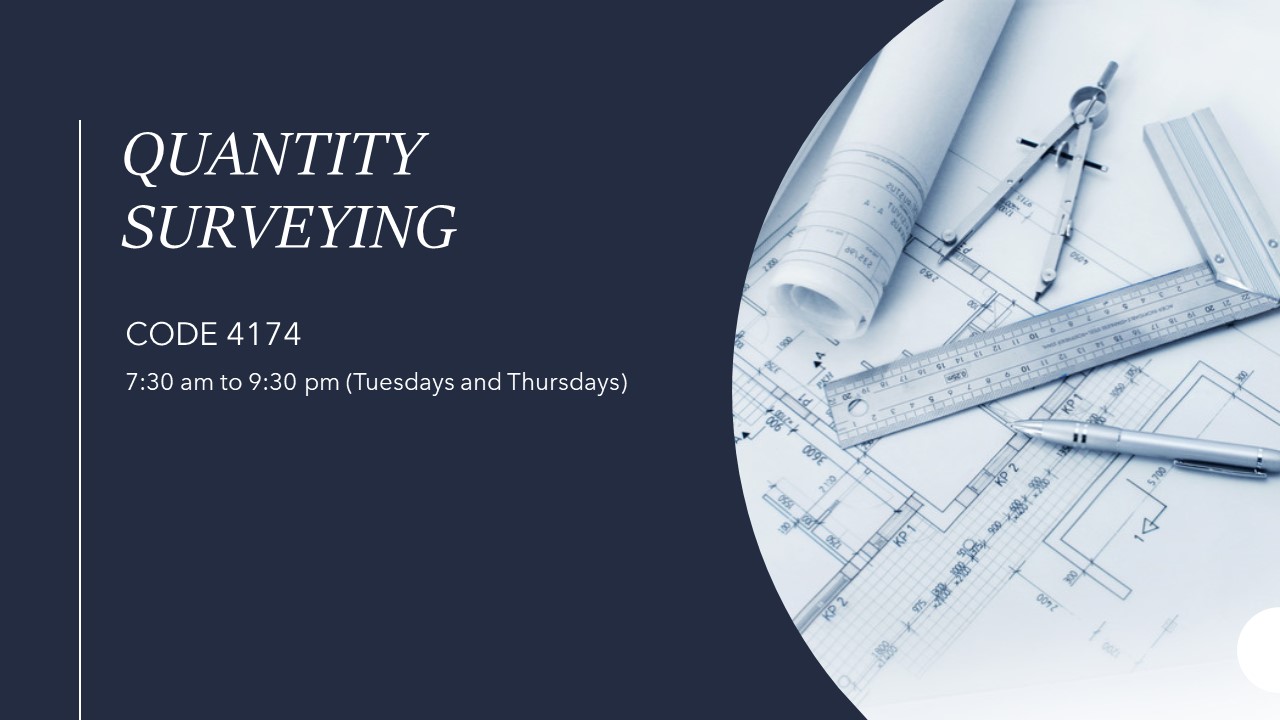Search results: 3380
Qualitative and Quantitative Chemistry is a course that deals with the study of the separation, identification, and quantification of the chemical components of natural and artificial materials. It covers the principles of chemical equilibrium and its applications to various equilibrium systems involving inorganic cations and anions. This course will provide students with a thorough background about chemical principles that are particularly important to analytical chemistry and develop the skills necessary to solve analytical problems qualitatively and quantitatively. Moreover, the students are also expected to perform laboratory tasks that will give them the confidence to obtain high-quality analytical data. This course also includes an introduction to classical and instrumental methods of quantitative chemical analysis.
- Teacher: OLIVAR REIMOS BARROGA
- Enrolled students: 50
Qualitative and Quantitative Chemistry is a course that deals with the study of the separation, identification, and quantification of the chemical components of natural and artificial materials. It covers the principles of chemical equilibrium and its applications to various equilibrium systems involving inorganic cations and anions. This course will provide students with a thorough background about chemical principles that are particularly important to analytical chemistry and develop the skills necessary to solve analytical problems qualitatively and quantitatively. Moreover, the students are also expected to perform laboratory tasks that will give them the confidence to obtain high-quality analytical data. This course also includes an introduction to classical and instrumental methods of quantitative chemical analysis.
- Teacher: OLIVAR REIMOS BARROGA
- Enrolled students: 50
Qualitative and Quantitative Chemistry is a course that deals with the study of the separation, identification, and quantification of the chemical components of natural and artificial materials. It covers the principles of chemical equilibrium and its applications to various equilibrium systems involving inorganic cations and anions. This course will provide students with a thorough background about chemical principles that are particularly important to analytical chemistry and develop the skills necessary to solve analytical problems qualitatively and quantitatively. Moreover, the students are also expected to perform laboratory tasks that will give them the confidence to obtain high-quality analytical data. This course also includes an introduction to classical and instrumental methods of quantitative chemical analysis.
- Teacher: OLIVAR REIMOS BARROGA
- Enrolled students: 52
- Enrolled students: No students enrolled in this course yet
- Enrolled students: No students enrolled in this course yet
This course will provide an insight into the importance of quality service to the tourism and hospitality industry.
- Teacher: Mark Ian SORIANO
- Enrolled students: 45
In political analysis, quantitative and qualitative approaches are indispensable to understand the world of politics. This course introduces students the various Statistical techniques for social research and quantitative analysis of political data mainly to understand the realm of decision making in the realm of politics. It also acquaints learners on the various qualitative research issues, methods and styles for understanding and explaining socio-political phenomena.
- Teacher: ERWIN NAVAL
- Enrolled students: 15
In political analysis, quantitative and qualitative approaches are indispensable to understand the world of politics. This course introduces students the various Statistical techniques for social research and quantitative analysis of political data mainly to understand the realm of decision making in the realm of politics. It also acquaints learners on the various qualitative research issues, methods and styles for understanding and explaining socio-political phenomena.
- Teacher: ERWIN NAVAL
- Enrolled students: 19
Quantitative Approaches to Management/ Management Science/ Operations Research as the name implies, involves “research on operations”. Thus, quantitative approaches to management deals with mathematical solutions to problems that concern how to conduct and coordinate the operations or activities within an organization. The mathematical models that are formulated seek to “optimize” a given objective function subject to a set of constraints; designed to aid in the planning and control of projects which require that certain activities be performed in sequence, while others may be performed independently of others. In addition, the course includes the provision of basic foundations in decision theory.
- Teacher: MELANIE GURAT
- Enrolled students: 5
- Teacher: DONNA BEE TOMINEZ
- Enrolled students: 7
- Teacher: ROWENA RIVERA
- Enrolled students: 10
Quantitative Approaches to Management involves research on operations. Thus, quantitative approaches to management deals with mathematical solutions to problems that concern how to conduct and coordinate the operations or activities within an organization. The mathematical models that are formulated seek to “optimize” a given objective function subject to a set of constraints; designed to aid in the planning and control of projects which require that certain activities be performed in sequence, while others may be performed independently of others. In addition, the course includes the provision of basic foundations in decision theory.
Image from https://encrypted-tbn0.gstatic.com/images?q=tbn:ANd9GcRTuBu9q6uqr-e3a9_ulIeGOxuh_0-5cDOPMJHg73ejQQDKDn7OVek0q29g4en3CoG6EwI&usqp=CAU
- Teacher: ROWENA RIVERA
- Enrolled students: 13
- Teacher: MELANIE GURAT
- Enrolled students: 32
This curse is a comprehensive introduction to the use of statistics in business decision-making. This course provides the analytical tools needed for making an informed business decision using data. The focus is on decision-making using the tools of statistics. Topics include graphical and numerical summaries of data, probability of distributions, hypothesis tests of mean and proportion, the chi-squared tests of statistical independence, and simple linear regression. The use of computing tools in statistical analysis is emphasized heavily.
- Teacher: MELANIE GURAT
- Enrolled students: 24
- Teacher: Dan Kenneth LUTCHIN
- Enrolled students: 42
- Teacher: Dan Kenneth LUTCHIN
- Enrolled students: 39
- Teacher: Dan Kenneth LUTCHIN
- Enrolled students: 39
shjajds;fpkdjbsdkjbv
- Teacher: Dan Kenneth LUTCHIN
- Enrolled students: 37
- Teacher: Dan Kenneth LUTCHIN
- Enrolled students: 20
- Teacher: Chasterine olayan
- Enrolled students: 10

